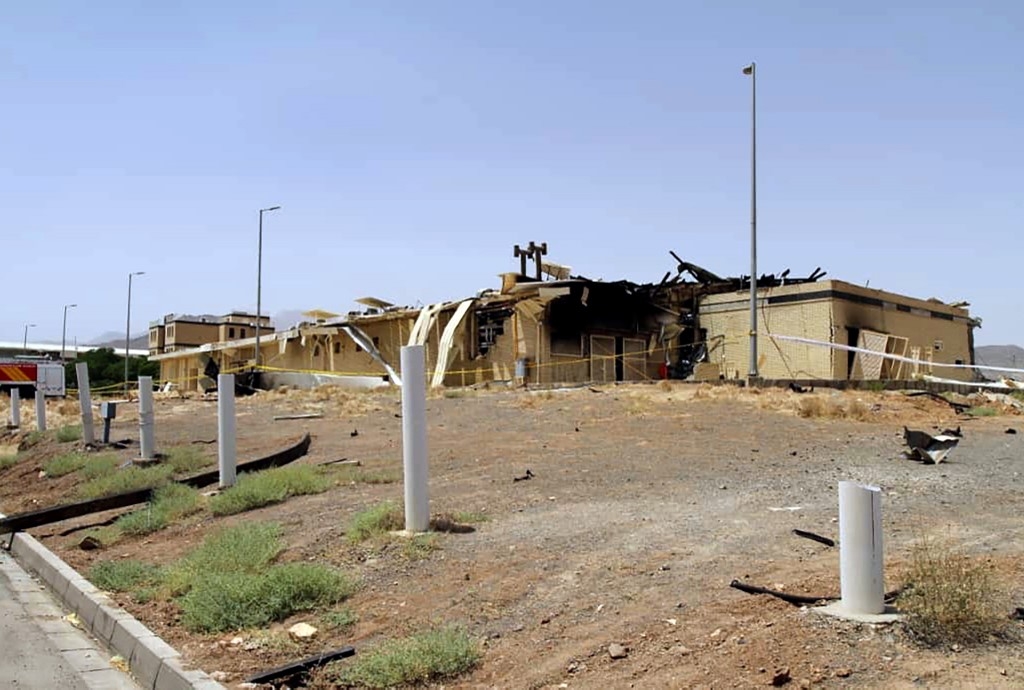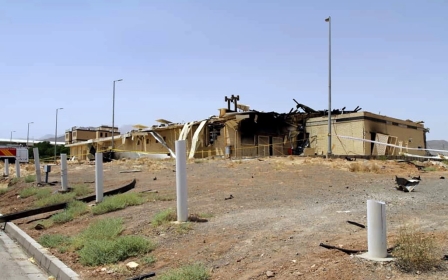Israel blamed for explosion at Iran's Natanz nuclear enrichment facility: Report

Israel has been accused of carrying out last week's attack on Iran's Natanz enrichment facility that caused "significant damage" and could slow the production of advanced centrifuges used to enrich uranium.
A Middle Eastern intelligence official with knowledge of the incident told The New York Times that contrary to the Iranian government's initial statement that it was an accident, a "powerful bomb" caused Thursday's fire.
Israel has worked to disrupt Iran's nuclear programme in the past, including the Stuxnet cyberattack in 2010, which targeted Iran's nuclear centrifuges and was blamed on Israel and the US.
A member of Iran's powerful Islamic Revolutionary Guard Corps told the Times that authorities had ruled out the possibility of a cyberattack, while the country's Civil Defence Organisation said authorities were looking at possible sabotage following recent blasts at several key Iranian sites.
Following the fire at the Natanz nuclear facility, a fire broke out at a power station in the country's southwest, and a chlorine gas leak occurred at a unit of the Karoon petrochemical plant near the port of Bandar Imam Khomeini on the Gulf, injuring dozens.
On 26 June, there was an explosion near the Parchin military and weapons development base, east of Tehran. Authorities said it was caused by a leak in a gas storage facility in an area outside the base.
"Considering we are in a serious economic war with the United States and we have conflicts in various fields, the first hypothesis is that these accidents could be a threat and caused by the enemy's moves," General Gholam Reza Jalali, the head of Iran's Civil Defence Organisation, said on Friday.
Hostile acts by "anti-revolutionary elements" were also a possibility, he said, referring to domestic opposition groups.
The Middle Eastern intelligence official told The Times, on condition of anonymity, that Israel was behind the Natanz blast but not any of the other incidents.
Hours before Iranian authorities announced the fire, a mysterious group calling itself the "Homeland Panthers" claimed responsibility for the attack in a series of emails sent to BBC Persian journalists.
The group told the BBC that the attack was carried out by elements within Iran's security forces.
Leiberman calls to gag official
In Israel, former Defence Minister Avigdor Leiberman appeared to call out Mossad chief Yossi Cohen for leaking Israel's alleged role in the blast to the press.
While not naming Cohen, Lieberman said: "everyone knows who that intelligence official is".
"I expect the prime minister to shut the [leaker’s] mouth, particularly as he has started his Likud primary election campaign,” Leiberman added. Cohen has been mentioned as a possible successor to Netanyahu.
"It just cannot be that that official not only explains what we did, but also what we didn't do."
Iran announced last year it would progressively suspend certain commitments made under a 2015 nuclear deal that the US walked away from in 2018.
One of those commitments was to put on hold its activities at Natanz. Tehran restarted enriching uranium at the nuclear facility in September.
The incident at the Natanz site comes just a few months ahead of the expiry date on a United Nations arms embargo on Iran, of which both the US and Israel are lobbying the UN Security Council to extend.
Middle East Eye propose une couverture et une analyse indépendantes et incomparables du Moyen-Orient, de l’Afrique du Nord et d’autres régions du monde. Pour en savoir plus sur la reprise de ce contenu et les frais qui s’appliquent, veuillez remplir ce formulaire [en anglais]. Pour en savoir plus sur MEE, cliquez ici [en anglais].





